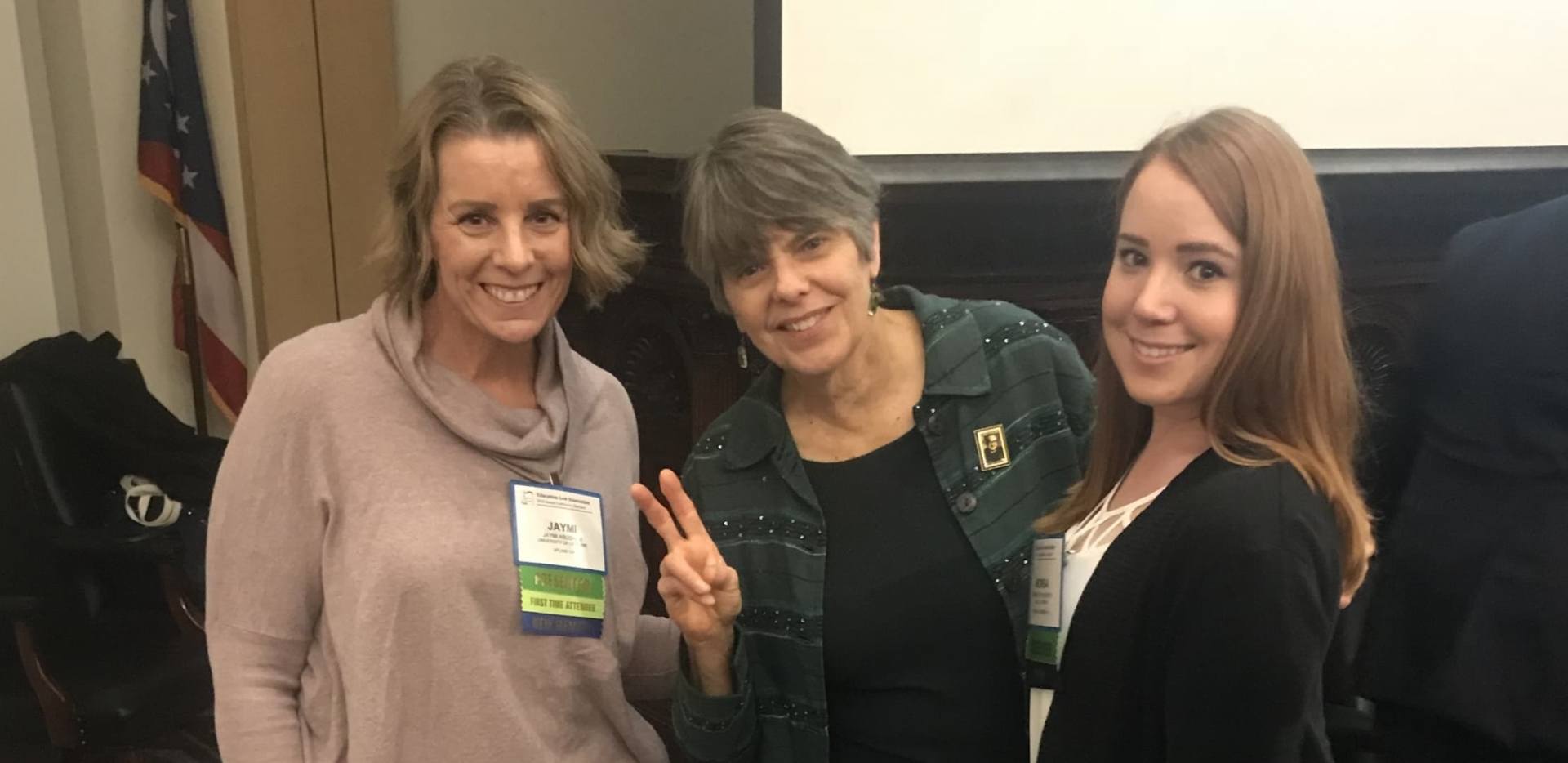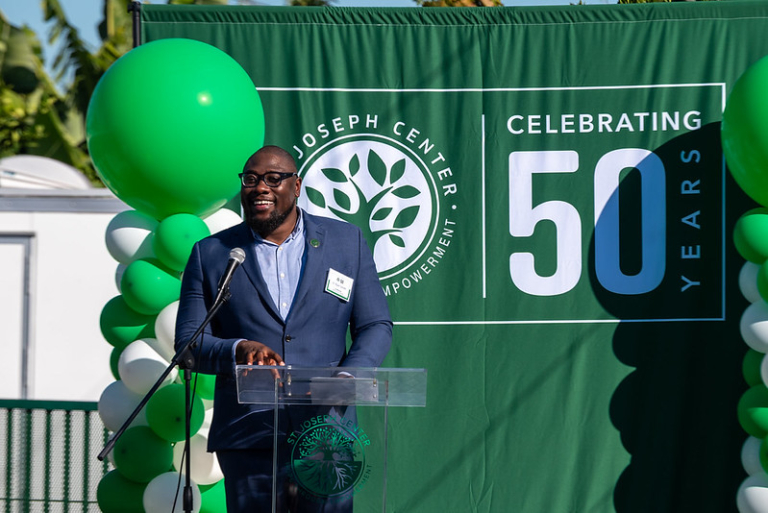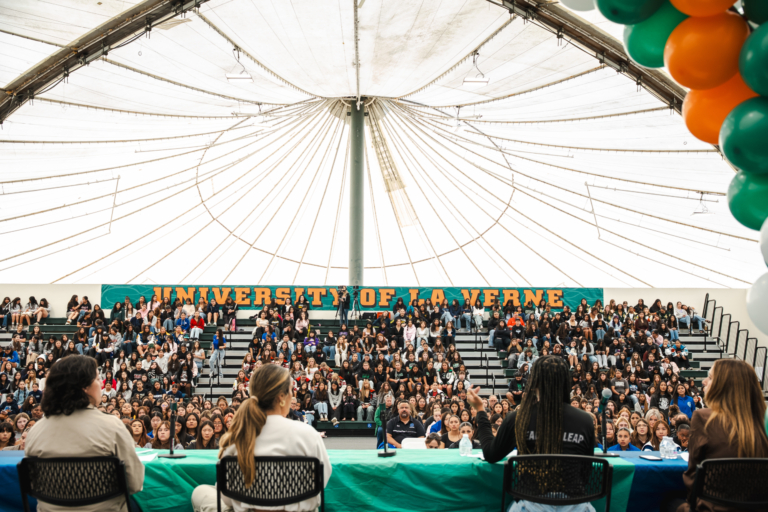A Voice for All Learners: Professor and Student Merge Education and Law in Joint Research Presentation

A University of La Verne faculty member and a graduate student have partnered on a research presentation that combines scholarship in the fields of law and educational studies.
Assistant Professor Jaymi Abusham and graduate student Andrea Schulewitch delivered their presentation on “Preparing School Leaders to Advocate for Social Justice” at the Education Law Association’s 64th Annual Conference Nov. 7-10 in Cleveland.
“It was amazing,” Schulewitch said. “Our audience was full of school administrators, professors of education and law, and attorneys who work in the field.”
Abusham, the program chair of educational leadership in the LaFetra College of Education, has done extensive work in educational leadership and social justice.
Schulewitch is a former high school history and social studies teacher who is working simultaneously on a master’s degree in educational leadership and in her final year of law school in the university’s College of Law.
The pair’s presentation focused on how educators can deploy strategies to create more equitable learning environments for diverse student populations.
Students at K-12 schools are far more diverse than they have been in the past, Abusham said. That diversity includes familiar factors such as ethnicity, sexual orientation, gender, and income levels, and must increasingly include acknowledgements of neurodiversity, which encompasses cognitive and other abilities.
Challenges such as being a low-income student, a student of color, an LGBTQ student, or a student with autism or ADHD have traditionally been seen as disadvantages, but that has to change, Abusham said.
“It’s really about shifting that perspective,” Abusham said. “Instead of thinking of a learning need as a disability, we can think of the student as neurodiverse. It’s shifting our thinking to see assets instead of deficits.”
Ensuring that all students have equal access to services and environments could require looking back at past legal decisions that support students, or turning to the courts and legislators to create new solutions, Schulewitch said.
That requires educators to have legal and legislative acumen, or to find partners who have that expertise.
Kevin Marshall, dean of the university’s College of Law, said the collaboration between Abusham and Schulewitch demonstrates the need for and effectiveness of such partnerships.
Whether crafting policy, working as general counsel for school districts, or representing parents and children with disabilities, there are growing opportunities for people whose expertise extends into both realms, Marshall said.
“It provides a huge advantage in being an advocate in education,” Marshall said.
The two fields of study are finding natural synergies at the University of La Verne, and more partnerships like this are on the way, he said.
The university’s LaFetra College of Education prepares students for leadership roles in education, with an emphasis on social justice. The college includes a Center for Neurodiversity, Learning, and Wellness, which focuses on how to equitably serve neurodiverse learners.
The College of Law has programs that are sensitive to the needs of children with disabilities, including the Disability Rights Legal Center, which concentrates on disability civil rights litigation and special education matters for low-income families and families of color.
Photo caption: Jaymi Abusham, University of La Verne assistant professor and program chair of educational leadership in the LaFetra College of Education, left, and Andrea Schulewitch, right, a graduate student who is simultaneously working on a master’s degree in educational leadership and completing her final year of law school at the university’s College of Law, partnered on a research presentation shared at the Education Law Association’s 64th Annual Conference. Pictured with the two women is Mary Beth Tinker, center, a free speech activist who was part of a 1969 precedent-setting case that went to the U.S. Supreme Court. The Supreme Court ruled that the Des Moines, Iowa high school Tinker attended could not punish her for wearing an armband in support of a truce in the Vietnam War.


